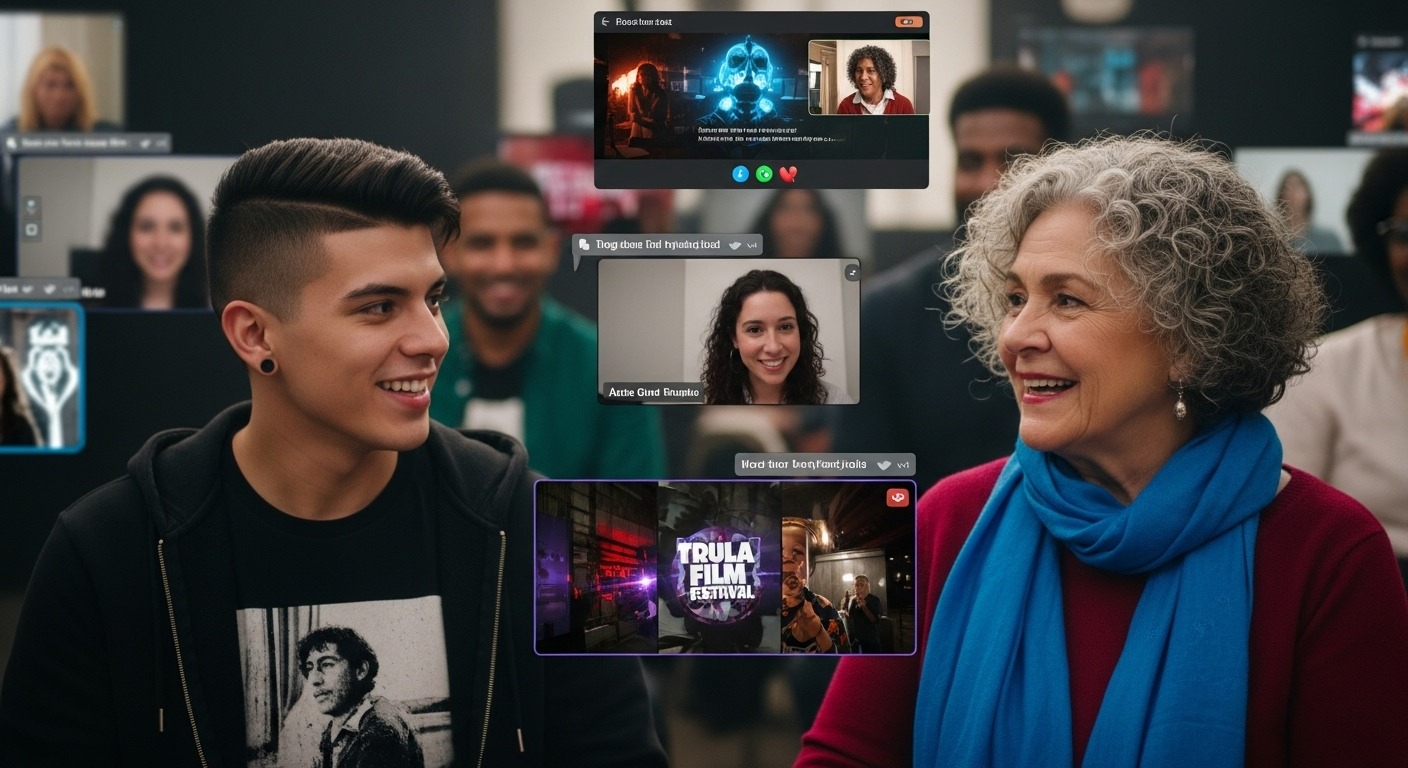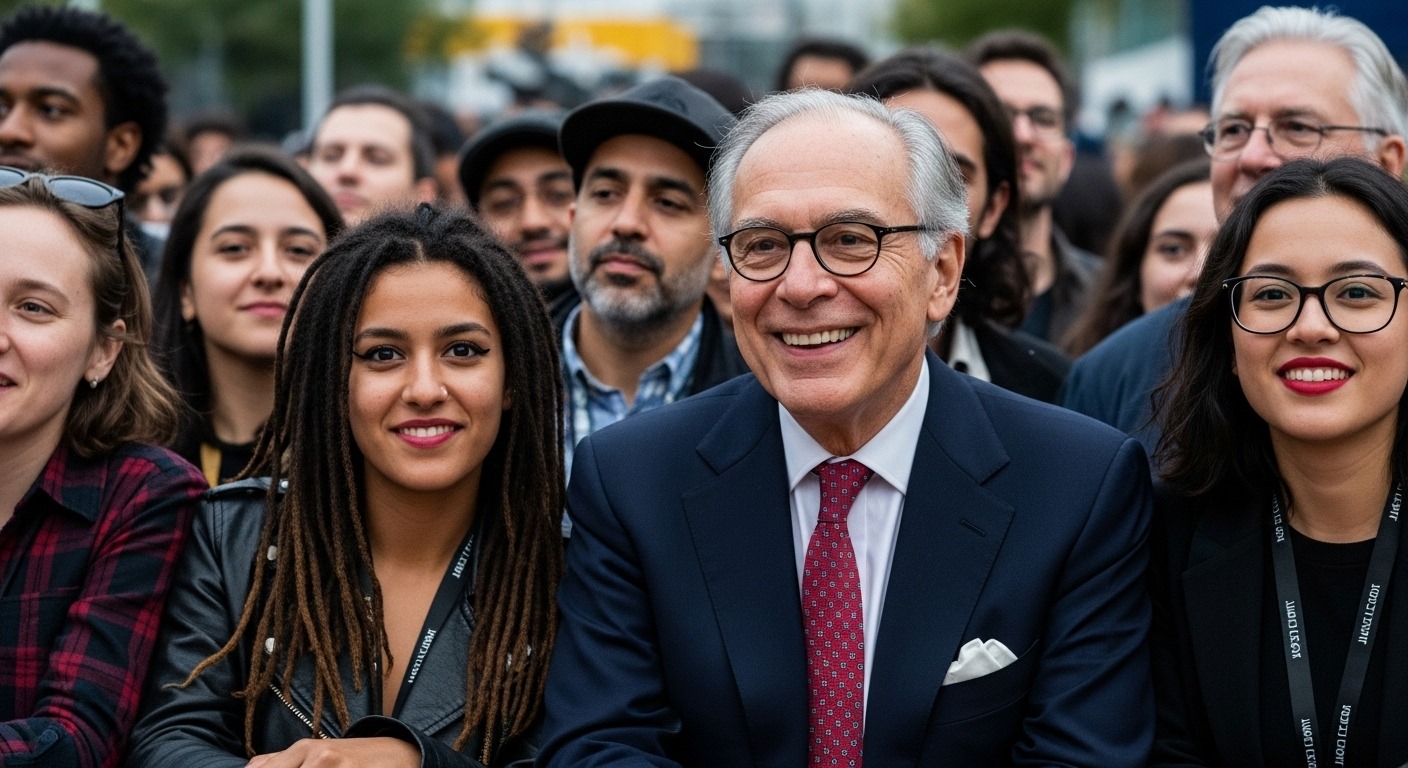Film festivals are vibrant celebrations of cinematic art, but their value extends far beyond the darkened theaters. For filmmakers, aspiring professionals, and even seasoned industry veterans, the true gold mine often lies in the industry panels—structured discussions where leading experts dissect the craft, business, and future of cinema. These panels are not just lectures; they are dynamic forums offering unparalleled insights, vital connections, and a blueprint for navigating the ever-evolving film landscape.
This article will serve as your definitive guide to understanding, preparing for, and maximizing the immense value of film festival industry panels, helping you transform passive attendance into active career growth.
1. What are Film Festival Industry Panels?
At their core, film festival industry panels are moderated discussions featuring a curated group of experts who share their knowledge, experiences, and perspectives on specific topics relevant to the film industry. They typically involve:
- A Moderator: Usually an experienced journalist, academic, or industry veteran who guides the conversation, introduces panelists, and facilitates the Q&A.
- Panelists: Two to five (or more) distinguished professionals from various sectors of the film industry.
- Audience: A diverse mix of filmmakers (from emerging to established), film students, industry aspirants, press, and curious film enthusiasts.
The primary purpose of these panels is multifaceted: to educate attendees, facilitate knowledge exchange, foster dialogue on critical issues, and provide invaluable networking opportunities in a structured environment.
2. Who’s on the Panel? The Voices of Experience.
The expertise present on industry panels is typically top-tier, offering direct access to decision-makers and thought leaders:
- Producers & Directors: Sharing insights into the creative process, project development, and navigating challenges.
- Distributors & Sales Agents: Discussing market trends, acquisition strategies, and how films find their audience.
- Financiers & Funders: Explaining funding models, grant opportunities, and what investors look for.
- Festival Programmers: Offering perspectives on film selection, premiere strategies, and the festival circuit.

- Studio Executives: Providing insights into studio operations, talent acquisition, and market demands.
- Legal Experts: Covering intellectual property, contracts, and industry regulations.
- Technology Innovators: Exploring the impact of new tech like AI, VR/AR, and virtual production on filmmaking.
- Writers, Editors, Cinematographers: Delving into the craft and collaborative aspects of filmmaking.
- Critics & Journalists: Offering analysis of industry trends and cultural impact.
3. Diverse Topics: What You Can Learn.
The range of topics covered in industry panels is vast, reflecting the multifaceted nature of the film industry. You can expect to find sessions on:
- Film Financing & Funding: From pitching to securing grants, understanding equity investment, co-production models, and navigating crowdfunding campaigns.
- Distribution & Sales Strategies: The evolving landscape of theatrical releases, navigating streaming platforms (Netflix, Amazon, HBO), international sales, and hybrid models.
- The Creative Process: Deep dives into directing techniques, screenwriting for different genres, the art of editing, sound design, and cinematography.
- Technology & Innovation: The impact of emerging technologies like AI in scriptwriting or post-production, virtual reality filmmaking, virtual production techniques, and blockchain.
- Diversity, Equity, & Inclusion: Discussions on representation in front of and behind the camera, equitable hiring practices, and fostering inclusive environments within the industry.
- Legal & Business Aspects: Understanding film contracts, intellectual property rights, chain of title, and navigating the complexities of film business.
- Festival Strategy: Expert advice on submitting your film to festivals, understanding premiere requirements, and maximizing your festival run.
- Case Studies: In-depth analyses of specific film projects, from inception to distribution, sharing challenges and successes.
- Marketing & Publicity: Strategies for building buzz, reaching target audiences, and managing a film’s public image.
4. The Undeniable Benefits of Attending Panels.
Actively participating in industry panels offers a multitude of tangible and intangible benefits for your career:
- Knowledge & Cutting-Edge Insights: Learn directly from top professionals who are actively shaping the industry. Gain insider perspectives on trends, challenges, and future directions that you won’t find in textbooks.
- Networking Opportunities: Panels are structured networking environments.
- With Panelists: While direct pitching is a no-go, a thoughtful question or a brief, respectful introduction after a session can open doors to future connection.
- With Fellow Attendees: This is often where the most organic and valuable networking happens. You’re surrounded by like-minded peers, potential collaborators, and future industry contacts. Strike up conversations about the panel’s content.

- Trend Spotting & Industry Context: Understand the current pulse of the industry, identify emerging technologies, new funding models, and shifts in audience behavior. This helps you stay relevant and adaptable.
- Inspiration & Motivation: Hear success stories, learn how others overcame challenges, and gain renewed motivation for your own creative journey.
- Visibility & Credibility: Asking intelligent, well-researched questions during the Q&A can make you memorable to both panelists and other attendees. It demonstrates your engagement and understanding of the industry.
- Demystifying the Industry: Panels break down complex topics into digestible information, making the often opaque world of film more understandable.
5. Making the Most of Industry Panels: A Strategic Approach.
To truly leverage the value of industry panels, a strategic approach before, during, and after the session is essential.
A. Before the Panel: Preparation is Power
- Research: Look up the panelists. Understand their backgrounds, what projects they’ve worked on, and their companies. This helps you formulate intelligent questions and identify specific people you want to hear from. Research the panel’s specific topic thoroughly.
- Define Your Questions: Don’t go in cold. Prepare a few concise, insightful questions that go beyond easily Googleable information. These are for the Q&A, not for pitching.
- Review Your Pitch (But Don’t Force It): While you won’t pitch during the panel, be ready with your concise elevator pitch (15-30 seconds) in case an organic conversation opportunity arises with a panelist or another attendee afterward.
- Update Your Online Presence: Ensure your LinkedIn profile, personal website/portfolio, and relevant social media are polished and up-to-date. This is where people will look you up after meeting.
B. During the Panel: Engage Thoughtfully.
- Arrive Early: Get a good seat where you can see and hear clearly. This also provides an opportunity to observe who else is in the room.
- Take Detailed Notes: Don’t rely on memory. Jot down key insights, specific names of people, companies, resources, or intriguing ideas mentioned.
- Listen Actively: Resist the urge to constantly check your phone or formulate your next question. Absorb the information being shared.
- Formulate Smart Questions (if asking): If you get a chance to ask a question during the Q&A, make it concise, relevant to the topic, and insightful. Avoid turning your question into a thinly veiled pitch for your own project. Focus on gaining knowledge for the broader audience.
- Be Present: Put away distractions. Your full attention not only benefits your learning but also shows respect to the panelists.

C. After the Panel: The Crucial Follow-Up.
- Approach Panelists (Respectfully & Briefly): If appropriate, wait for a natural break, briefly introduce yourself, express your appreciation for their specific insights (“Your point about [X] was particularly insightful…”), and concisely state how it resonated with you. Do NOT launch into a pitch for your film unless they explicitly invite it. Have your business card ready but don’t force it upon them.
- Connect with Fellow Attendees: This is a prime time for peer-to-peer networking. Engage in conversations about the panel’s content, share your insights, and exchange contact information. These connections can lead to future collaborations.
- Take Immediate Notes: As soon as possible after the conversation, record the person’s name, their company, where you met, what you discussed, and any agreed-upon next steps. This context is vital for effective follow-up.
6. Common Panel Pitfalls to Avoid.
- The “Me” Question / Pitch: The most common and frustrating mistake. Don’t frame your personal project pitch as a “question for the panel.” It wastes everyone’s time and reflects poorly on you.
- Asking Obvious Questions: Don’t ask questions that could easily be answered by a quick search on Google or the festival’s website. Show you’ve done your homework.
- Being Unprepared: Not knowing who the panelists are, the session topic, or having a rough idea of what you want to learn.
- Not Following Up: A missed opportunity. A great conversation means nothing if you don’t follow up properly.
- Over-scheduling: Trying to attend every single panel can lead to burnout and diminish your ability to absorb information or network effectively. Be strategic.
- Being a Wallflower: While active listening is crucial, don’t be afraid to engage or approach people if the opportunity arises.
Conclusion: Invest in Your Industry Intelligence.
Film festival industry panels are an invaluable resource, offering a condensed education in the ever-evolving world of cinema. They provide direct access to the minds shaping the industry, insights into critical trends, and fertile ground for forging meaningful connections.
By approaching these sessions with strategic preparation, active engagement, and thoughtful follow-up, you’re not just attending; you’re actively investing in your industry intelligence and propelling your career forward in the dynamic landscape of film.

I am a highly experienced film and media person who has a great deal to offer to like-minded individuals. Currently working on several exciting projects, I am a film and media practitioner for over a decade. I have achieved a great deal of success in my professional career.





